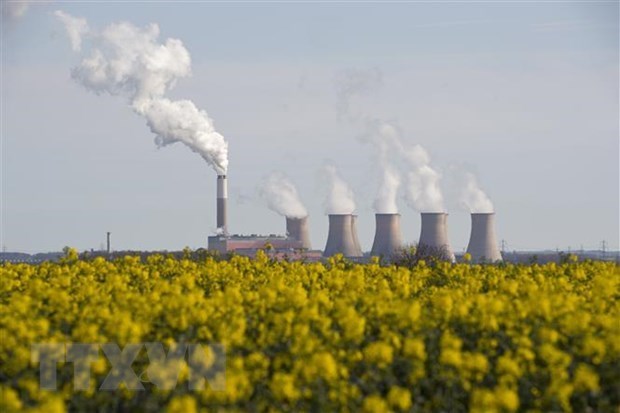
On December 13, the member states of the European Union (EU) announced that they would implement the Carbon Border Adjustment Mechanism (CBAM), which imposes a carbon tax on all goods exported to this market. based on the intensity of greenhouse gas emissions in the production process in the host country.
According to the Council of Europe, CBAM will initially apply to imported goods such as steel, cement, fertilizer, aluminum, electricity and hydrogen. These are areas with a high risk of carbon leakage and high carbon emissions, accounting for 94% of the EU's industrial emissions.
Importers will have to report emissions contained in imported goods, if these emissions exceed EU standards, they will have to purchase "emissions certificates" at current carbon prices in the EU.
CBAM will also be applied to imported goods whose production processes indirectly emit carbon into the environment.
The European Parliament (EP) says the CBAM is the world's first mechanism to levy a carbon tax on imported goods. The mechanism is designed to comply with World Trade Organization (WTO) rules to prevent protectionism.
European MP Mohammed Chahim affirmed that CBAM will be an important pillar of Europe's climate policies.
He emphasized that this is one of the only mechanisms that the EU has to encourage trading partners to decarbonize the manufacturing sector.
It is expected that 27 EU member states will start piloting CBAM in October 2023. The timetable for implementing the mechanism will depend on the outcome of further negotiations scheduled to take place later this week.
The EU is committed to reducing net emissions by 55% by 2030 from levels recorded in 1990 and achieving its goal of being carbon neutral by 2050.